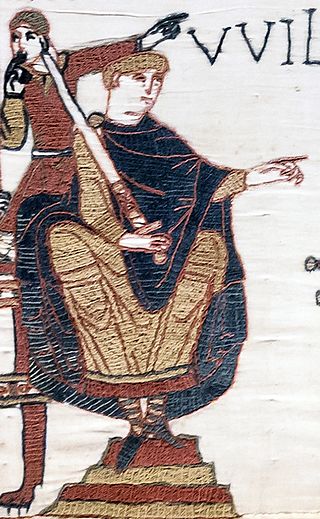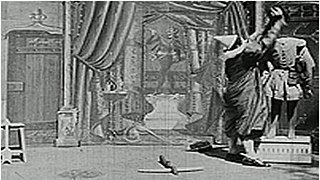Guillaume Tell is the French name for Swiss folk hero William Tell.
Guillaume Tell can also refer to:
William III or William the Third may refer to:

William is a masculine given name of Germanic origin. It became very popular in the English language after the Norman conquest of England in 1066, and remained so throughout the Middle Ages and into the modern era. It is sometimes abbreviated "Wm." Shortened familiar versions in English include Will, Wills, Willy, Willie, Liam, Bill, and Billy. A common Irish form is Liam. Scottish diminutives include Wull, Willie or Wullie. Female forms are Willa, Willemina, Wilma and Wilhelmina.

William Tell is a French-language opera in four acts by Italian composer Gioachino Rossini to a libretto by Victor-Joseph Étienne de Jouy and L. F. Bis, based on Friedrich Schiller's play Wilhelm Tell, which, in turn, drew on the William Tell legend. The opera was Rossini's last, although he lived for nearly 40 more years. Fabio Luisi said that Rossini planned for Guillaume Tell to be his last opera even as he composed it. The often-performed overture in four sections features a depiction of a storm and a vivacious finale, the "March of the Swiss Soldiers".

Guillaume is the French equivalent of William, which is of old Germanic origin.
William V may refer to:

Guillaume Canet is a French actor, film director and screenwriter, and show jumper.
Liam is a short form of the Irish name Uilliam or the old Germanic name William.
L'hôpital means "The Hospital" in French.
Saint William may refer to:
William of Chartres or Guillaume de Chartres may refer to:
William Tell is a hero in Swiss legend.
William de Ferrers or Guillaume de Ferrières may refer to:

HMS Malta was an 80-gun third rate ship of the line of the Royal Navy. She had previously served with the French Navy as the Tonnant-classGuillaume Tell, but was captured in the Mediterranean in 1800 by a British squadron enforcing the blockade of French-occupied Malta. Having served the French for less than four years from her completion in July 1796 to her capture in March 1800, she would eventually serve the British for forty years.
Saint Guillaume is the French equivalent for Saint William. It may refer to the following place names:

The action of 31 March 1800 was a naval engagement of the French Revolutionary Wars fought between a Royal Navy squadron and a French Navy ship of the line off Malta in the Mediterranean Sea. By March 1800 Valletta, the Maltese capital, had been under siege for eighteen months and food supplies were severely depleted, a problem exacerbated by the interception and defeat of a French replenishment convoy in mid-February. In an effort to simultaneously obtain help from France and reduce the number of personnel maintained in the city, the naval commander on the island, Contre-amiral Pierre-Charles Villeneuve, ordered his subordinate Contre-amiral Denis Decrès to put to sea with the large ship of the line Guillaume Tell, which had arrived in the port shortly before the siege began in September 1798. Over 900 men were carried aboard the ship, which was to sail for Toulon under cover of darkness on 30 March.

Adventures of William Tell is an 1898 French short black-and-white silent trick film, directed by Georges Méliès, featuring a clown trying to shoot fruit off the head of a dummy which comes to life. The film is, "a knockabout farce based on jump-cuts and the timely substitution of dummies for real bodies," with, according to Michael Brooke of BFI Screenonline, "a level of onscreen violence not previously seen in a surviving Méliès film," which marks, "a bridge between the onstage effects of the famous Théâtre du Grand Guignol and countless later outpourings of comically extreme screen violence as seen in everything from Tex Avery cartoons to the early films of Sam Raimi."
This is a partial discography of William Tell, an opera with music by Gioachino Rossini and a French libretto by Etienne de Jouy and Hippolyte Bis. The work was first performed on 3 August 1829 by the Paris Opera at the Salle Le Peletier. It was first performed in Italian as Guglielmo Tell in Germany on 28–29 January 1831 in Dresden and in Italy on 17 September 1831 in Lucca.
Guillaume may refer to:

Guillaume is the French equivalent of William (name), which is of old Germanic origin.
William of Evreux or William d'Evreux typically refers to William, Count of Évreux.